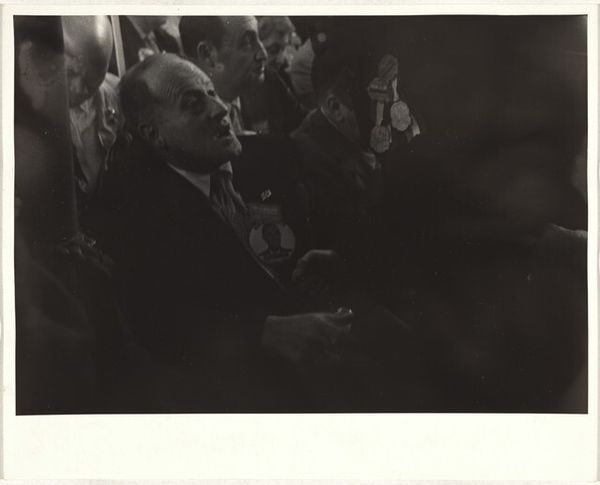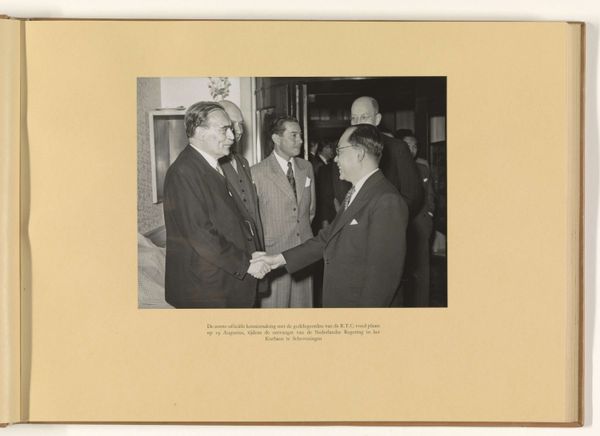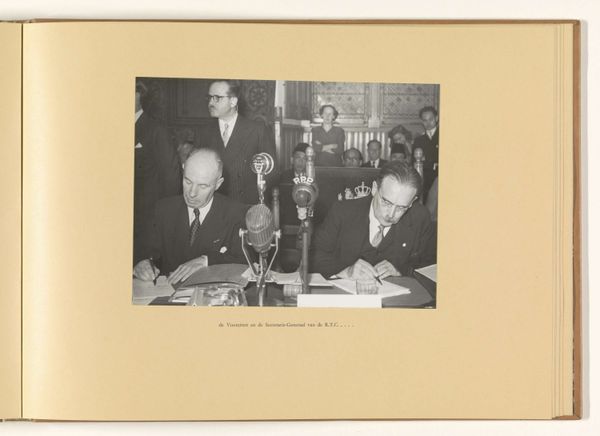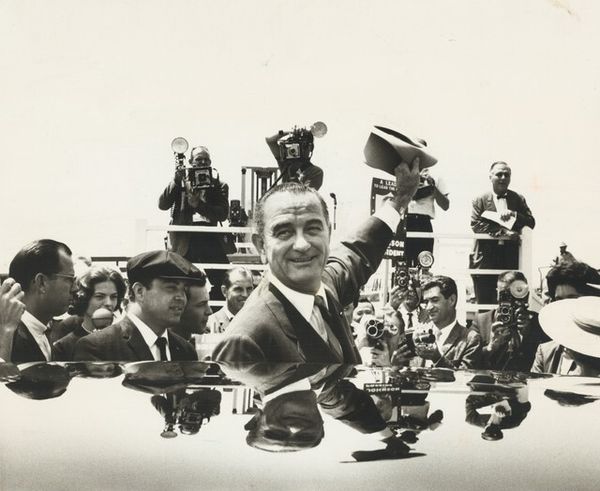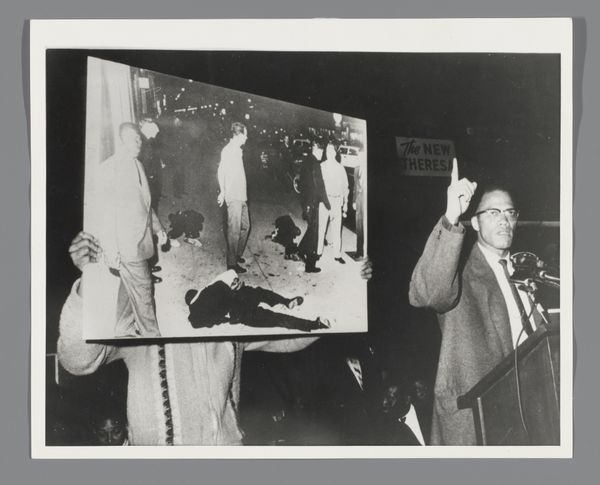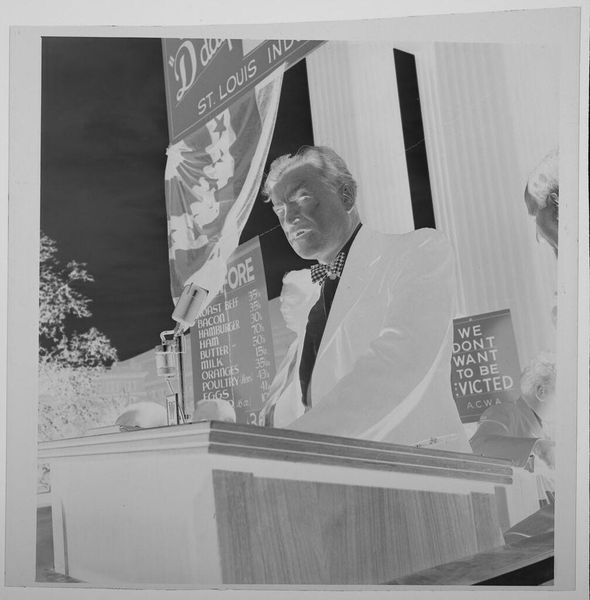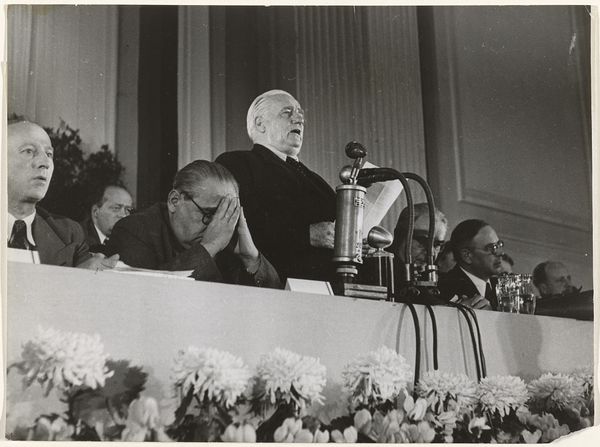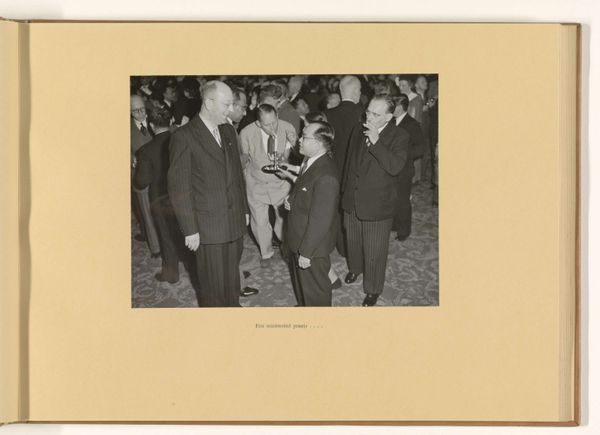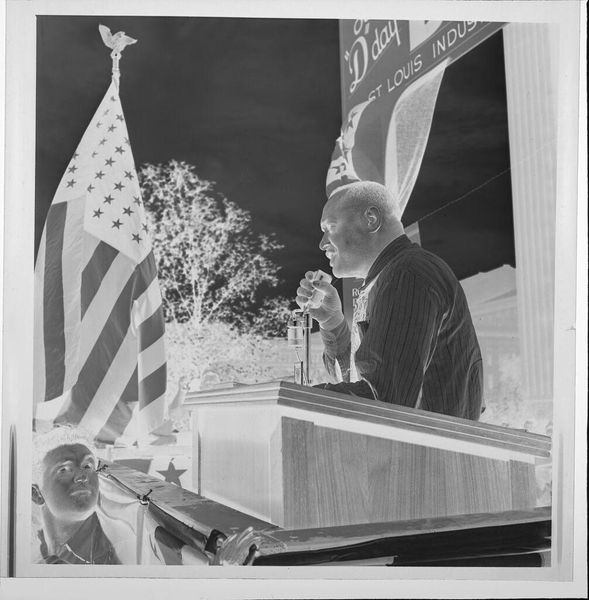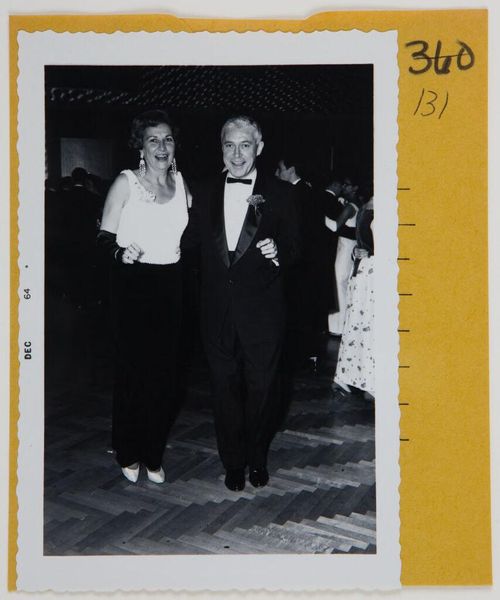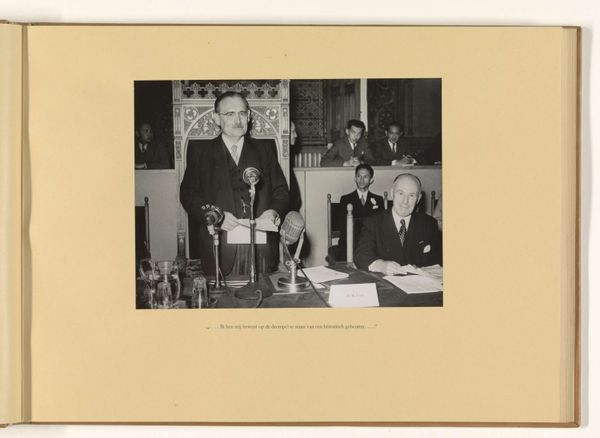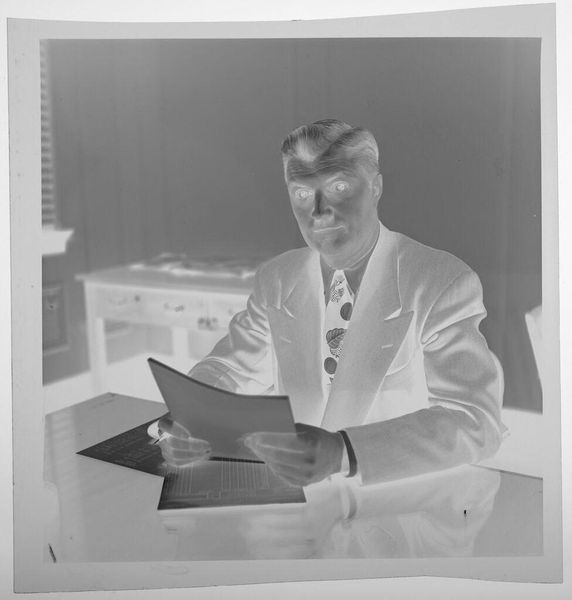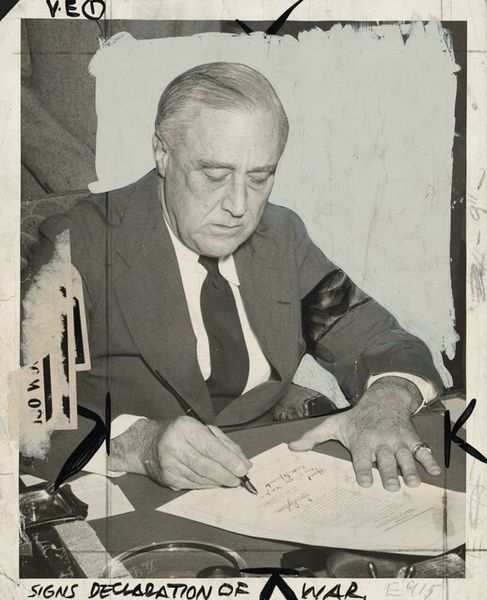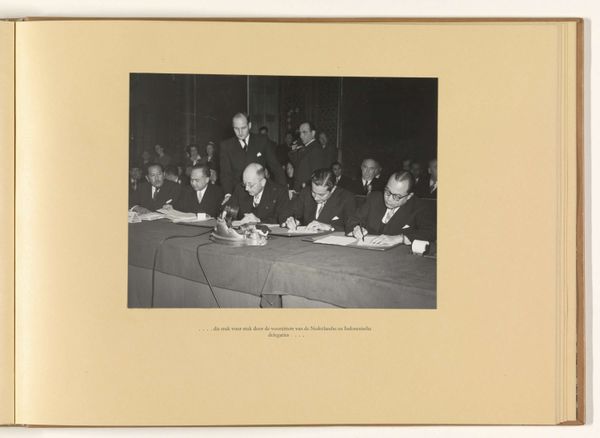
#
print photography
#
wedding photograph
#
photo restoration
#
photo element
# print
#
wedding photography
#
archive photography
#
historical photography
#
couple photography
#
photographic element
#
celebration photography
Dimensions: sheet: 25.2 x 20.3 cm (9 15/16 x 8 in.)
Copyright: National Gallery of Art: CC0 1.0
Curator: This is a fascinating photograph by Robert Frank, titled "Filming, NBC TV studio--Burbank, California," dating from around 1955-1956. It’s a black and white print. What are your initial thoughts? Editor: Immediately, I'm struck by the contrast. The image feels disjointed—a screen showing a man in a suit floats above a chaotic scene of production. The lights, the cameras... it's all about labor and the manufactured image. Curator: It’s interesting you mention labor, as Frank's work often captured unseen or overlooked aspects of American life. The staging here really emphasizes the constructed nature of television, a growing influence at the time. Editor: Exactly. You see the raw, unglamorous process – the camera operators, the equipment. And then, this polished, reassuring face on the monitor, promising something different. The materiality of the studio contrasts with the projected image. Curator: This contrast reflects anxieties of the period – the real versus the presented. Mass media’s expanding role caused unease; it raised questions about authenticity, the blurring of public and private spheres, the nature of the image, and the society's turn to superficial culture. Editor: Right, but look closer at the print itself. The photographic paper, the development process – it's all integral to Frank's commentary. Each choice highlights that what we consume is fundamentally fabricated. Curator: Definitely, and think about the image production in relationship with its consumption; considering who got to see it, who the message targeted. But is Frank making a judgment? Is this a critique of TV, or is he simply documenting a cultural phenomenon? Editor: I think it is a little bit of both; I interpret it less as condemnation, more as showing you what lies underneath this new influential industry. I'm fascinated how he captures the sheer mechanics, how it underscores how appearances and stories become a commercial product. Curator: I find your points on how it questions commercialisation of stories so intriguing. Ultimately, the picture, as I reflect more on your points about labor, it becomes a documentation about the beginning of production-line information.
Comments
No comments
Be the first to comment and join the conversation on the ultimate creative platform.
